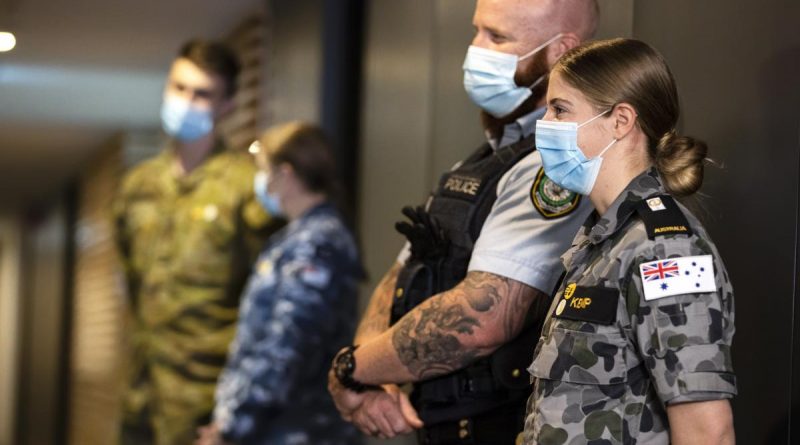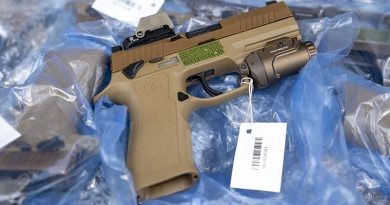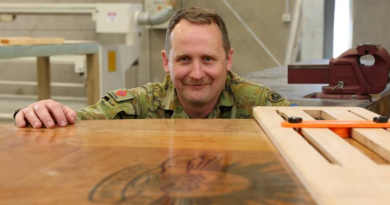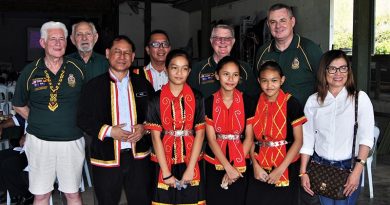ADF supports evacuees in quarantine

Recent evacuees from Afghanistan are being helped in their transition to a new life in Australia by ADF personnel on Operation COVID-19 Assist.
CAPTION: NSW Police Senior Constable Peter Heginbotham, front left, and Midshipman Bridie Kemp on hotel quarantine duties during Operation COVID-19 Assist. Story by Flight Lieutenant Eamon Hamilton. Photo by Corporal Dustin Anderson.
In Sydney, about 200 personnel are providing quarantine compliance monitoring at quarantine hotels and Sydney airport as part of Joint Task Group 629.1.
Squadron Leader Steve Cutajar leads a team at one hotel supporting Australian citizens and visa holders evacuated from Afghanistan, referred to as guests by the ADF.
The ADF is working with other agencies including hotel staff, NSW Police, NSW Health, Nursing Australia, Settlement Services International (SSI) and private security guards.
“We help manage the arrival of the guests into the hotel using NSW Health protocols, and ensure that they have clothing and bathroom supplies, as well as providing toys and essential needs to the guests,” Squadron Leader Cutajar said.
“SSI is the lead agency responsible for procuring the supplies; however, the ADF has been managing the distribution to the guests and any additional requests they may have.”
The ADF team also assists health staff by providing translators, some of whom were born in Afghanistan, who provide invaluable assistance to the transition team.
“We’re also able to reassure guests and provide them updates and manage their expectations, noting the evacuees have gone through a tumultuous experience,” Squadron Leader Cutajar said.
“That includes passing material requests through SSI to purchase, and working with hotel staff in order to ensure that their dietary needs are being looked after and pass information about what the next steps are for their integration into Australia.”
The NSW Police Force is the lead quarantine security agency, with the ADF team providing support through compliance, language and welfare activities.
“All of the agencies are very happy to be working with ADF as it is something that we do not do often, and there are plenty of opportunities to compare experiences,” Squadron Leader Cutajar said.
“Nursing Australia has commented that they were surprised at how ADF staff responded to direction-executed tasks with little question or hesitation, no matter the importance of the task.”
ADF personnel work in three eight-hour shifts, each starting their day with a QR code check-in and passing through security and nursing staff checks.
After a saliva test for any early signs of COVID-19, each member conducts a handover with the preceding shift.
Each shift typically involves compliance checks, organising supplies and support materials, and gathering information on guest preferences for re-location.
“Our team is made up of bricks of up to eight personnel, drawn from all three services and supported by a command and control team,” Squadron Leader Cutajar said.
“Our members come from all manner of specialisations and musterings, ranging from 25 years in the ADF to some members who have four months in the service.”
Flight Sergeant Kim Fletcher from RAAF Base Williamtown welcomed the opportunity to work in hotel quarantine.
“Operation COVID-19 Assist has given me the opportunity to continue to support the Afghan people as I did on deployment in 2010,” Flight Sergeant Fletcher said.
“It is satisfying to know that we have assisted to make their transition into Australian life a more positive experience.
“It is a privilege to be able to be included on this operation.”
.
.

.
.





